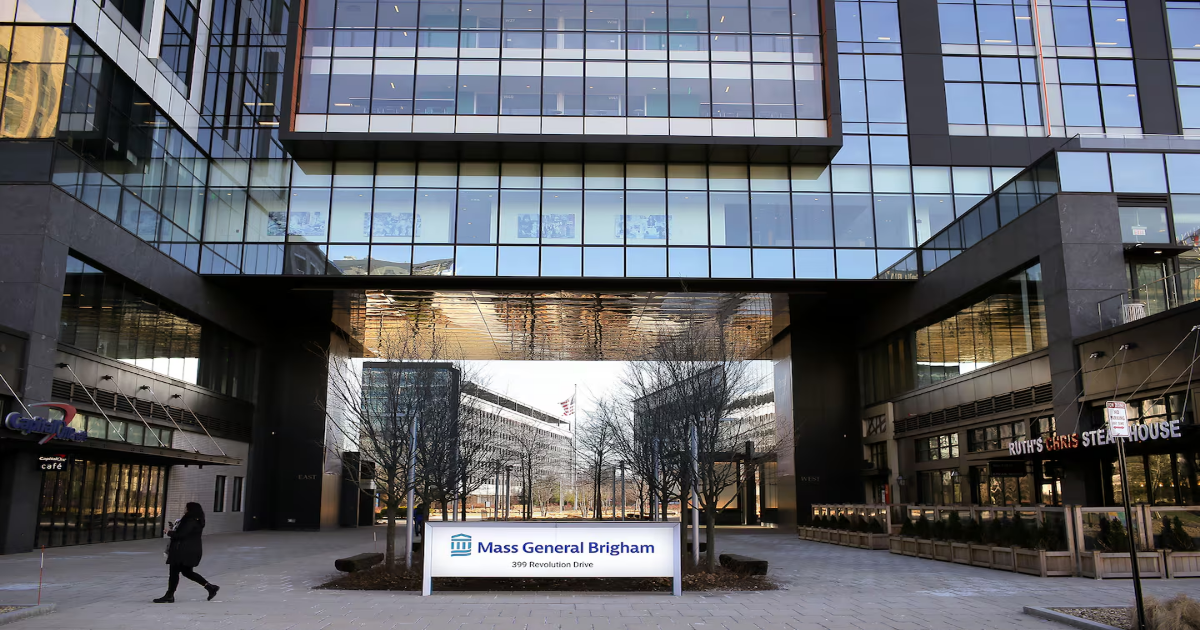Teaching hospitals affiliated with Harvard University will not be affected by the federal government’s decision this week to freeze $2.2 billion in funding to the university, according to a spokesperson for the US Department of Education.
The spokesperson, Madison Biedermann, said Tuesday morning in a brief statement emailed to the Globe that “the hospitals were not impacted in the freeze,” indicating that the brunt of the cuts would fall on Harvard itself, not its hospital partners.
Shortly after the federal government announced the funding freeze in retaliation for Harvard defying a slew of government demands, the head of Mass General Brigham said officials at the Harvard-affiliated health system believe it shouldn’t apply to MGB.
Dr. Anne Klibanski, chief executive of the state’s largest health system, said in a message emailed to employees late Monday night that officials didn’t know what impact the freeze will have on MGB and Harvard Medical School.
“However, we believe that the government’s requests of Harvard University are not applicable to our separately incorporated and independently operated medical and research hospitals,” Klibanski said. “We have a separate governance structure, including our Board and Management teams. We do not set Harvard University’s policies with respect to its students, faculty, and other employees, or conduct on its campus.”
Unlike other teaching hospitals in the country, which are owned by universities that receive federal grants, Harvard’s affiliated hospitals are independent nonprofit institutions. Under an affiliation agreement that has been in effect for decades, the hospitals agree to teach Harvard medical students and Harvard agrees to give hospital physicians appointments at Harvard Medical School.
That legal distinction might come to bear in legal efforts to challenge research funding cutbacks. As a practical matter, it didn’t deter the administration from previously threatening to cut funding to Harvard and its affiliates as it undertook a “review,” announced March 31, of $9 billion in federal funding. But the Trump administration’s announcement of a freeze on Monday night didn’t mention Harvard affiliates.
One physician at MGB criticized Klibanski’s letter distancing the health system from Harvard. Dr. Marjorie Curran, a pediatrician at Mass General for Children who helped write a letter signed by more than 200 physicians and other MGB workers that urged the system to stand up to the Trump administration, said MGB “is a Harvard teaching hospital where most of the clinicians hold Harvard Medical School appointments.’
“It is difficult to believe that cuts directed at Harvard will not affect the MGB hospitals,” Curran said in an email. “Now is the time for clinical and academic centers to stand together, not create space between them.”
Hours after Harvard defied the Trump administration’s attempt on Monday to force policy changes and federal oversight of the school’s affairs, the government announced a freeze of $2.2 billion in multi-year grants and $60 million in multi-year contract value to the school.
The Trump administration had said it was reviewing federal funding for Harvard and its affiliates in an effort to “root out antisemitism,” according to the government’s antisemitism task force.
The task force issued a list of demands, including ending diversity, equity, and inclusion programs, implementing “merit-based” admissions and hiring practices, cooperating with federal immigration authorities, and changing student disciplinary procedures. The government expanded the list of demands last Friday.
Trump and his allies contend the measures will help combat antisemitism on campus. They allege that Harvard failed to protect Jewish students from harassment during pro-Palestinian protests.
But after the government sent Harvard the broader demands, Harvard president Alan Garber on Monday vowed to defy them.
“No government — regardless of which party is in power — should dictate what private universities can teach, whom they can admit and hire, and which areas of study and inquiry they can pursue,” he said in a letter to the Harvard community.
This is a developing story and will be updated.
Jonathan Saltzman can be reached at [email protected]. Robert Weisman can be reached at [email protected]. Mike Damiano can be reached at [email protected].
